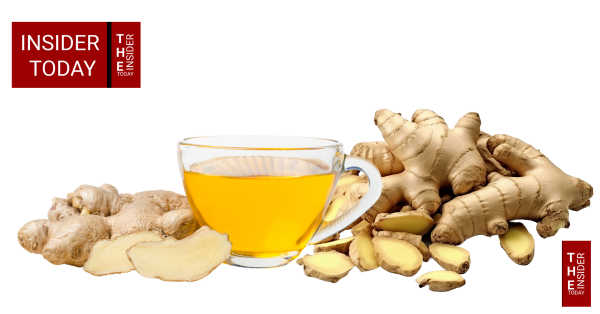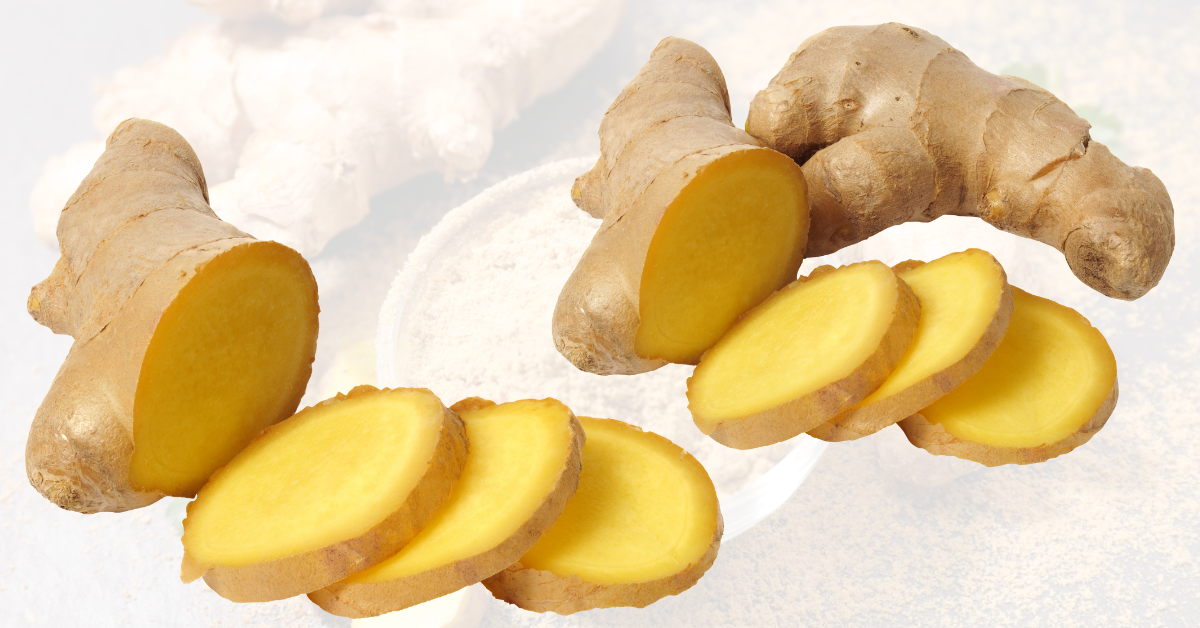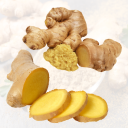Ginger is a popular spice known for its strong flavor and numerous health benefits. Here are some of the key benefits of ginger:
1. Anti-Inflammatory and Antioxidant Effects:
- Gingerol: The main bioactive compound in ginger, gingerol, has powerful anti-inflammatory and antioxidant effects. It helps reduce oxidative stress and inflammation in the body.

Gingerol is a naturally occurring phenolic compound found in Zingiber officinale, commonly known as ginger, from the Zingiberaceae family. It is known for its ability to reduce inflammation and has potential anti-tumor properties. Article about Gingerol as reference
2. Aids in Digestion:
- Reduces Nausea: Ginger is highly effective at reducing nausea, including morning sickness during pregnancy, and nausea caused by chemotherapy or surgery.
- Improves Digestion: Ginger helps speed up the emptying of the stomach, which can be beneficial for people with indigestion and related stomach discomfort.
Article Reference about the benefit of ginger.
3. Relieves Pain:
- Joint Pain: Due to its anti-inflammatory properties, ginger can help reduce symptoms of osteoarthritis, particularly joint pain and stiffness.
- Menstrual Pain: Ginger has been traditionally used to relieve pain during menstruation, and studies have shown it can be as effective as some pain medications.
3.1 How to relieve Pain in Joints:
Relieving joint pain with ginger can be done in several ways, leveraging its natural anti-inflammatory properties. Here are a few methods:
1. Ginger Tea:
- Ingredients: Fresh ginger root (1-2 inches), water, honey, and lemon (optional).
- Instructions:
- Slice the ginger root into thin pieces.
- Boil the slices in 2 cups of water for 10-15 minutes.
- Strain the tea and add honey or lemon to taste.
- Drink 2-3 cups daily to help reduce joint pain and inflammation.
2. Ginger Compress:
- Ingredients: Fresh ginger, water, a clean cloth or towel.
- Instructions:
- Grate or finely chop fresh ginger.
- Boil it in water for 5-10 minutes, then let it cool slightly.
- Soak a clean cloth in the ginger-infused water, wring out excess liquid, and apply the compress to the affected joint for 15-20 minutes.
- Repeat this 1-2 times daily.
- Ingredients
- Instructions:
- Roast the ginger for 5-10mins
- Minced while still heat
- Wrap in a bandage while the heat is manageable in your pain area.
- Leave it up to 12 hours
Image shown for bandaging ginger. It is good for arthritis pain.

3. Ginger Oil Massage:
- Ingredients: Ginger essential oil, carrier oil (like coconut or olive oil).
- Instructions:
- Mix a few drops of ginger essential oil with a tablespoon of carrier oil.
- Gently massage the mixture into the affected joints.
- Do this daily to help alleviate pain and improve joint mobility.
4. Ginger Supplements:
- Instructions:
- Ginger supplements are available in capsule or powder form. Follow the recommended dosage on the packaging, usually around 250-500 mg taken 2-3 times a day.
- Consult a healthcare provider before starting supplements, especially if you're taking other medications.
5. Ginger in Diet:
- Incorporate ginger into your daily meals by adding it to soups, stir-fries, smoothies, or salads. Regular consumption can help reduce chronic inflammation and joint pain over time.
4. Supports Cardiovascular Health:
- Lowers Blood Sugar: Some studies suggest that ginger can help lower blood sugar levels, which is beneficial for heart health and managing diabetes.
- Lowers Cholesterol: Ginger has been shown to reduce levels of LDL (bad) cholesterol, which can reduce the risk of heart disease.
5. Boosts Immune System:
- Antimicrobial Properties: Ginger has natural antibacterial and antiviral properties, helping the body to fend off infections and strengthen the immune system.
6. Improves Brain Function:
- Protects Against Alzheimer’s: The anti-inflammatory and antioxidant properties of ginger may help protect against age-related decline in brain function, reducing the risk of Alzheimer's disease.
- Enhances Memory: Some studies suggest that ginger can improve reaction time and working memory.
7. Helps with Weight Loss:
- Boosts Metabolism: Ginger may increase calorie burn and reduce feelings of hunger, which can aid in weight management.
- Reduces Body Fat: Some studies have shown that ginger can help reduce body fat, especially around the abdomen.
8. Fights Respiratory Infections:
- Soothes Sore Throat: Ginger can help relieve symptoms of respiratory infections, such as a sore throat and coughing, due to its anti-inflammatory effects.
- Clears Congestion: The warming effect of ginger can help clear nasal congestion and improve breathing during colds and flu.
9. Anti-Cancer Properties:
- Gingerol and Shogaol: These compounds in ginger have been studied for their potential to prevent and slow the growth of certain types of cancer, including colon and ovarian cancer.
10. Regulates Blood Pressure:
- Improves Circulation: Ginger can help improve blood circulation and relax blood vessels, which helps regulate blood pressure.
















Hi, Thanks for this article It is great. I would like to receive more blogs like this.